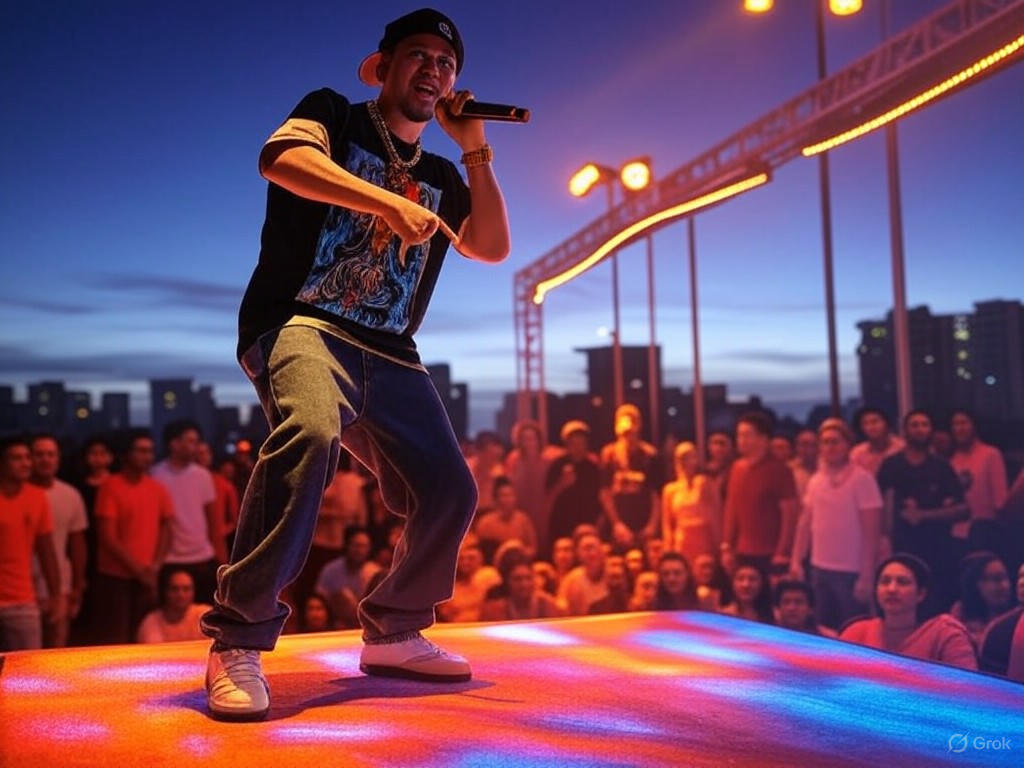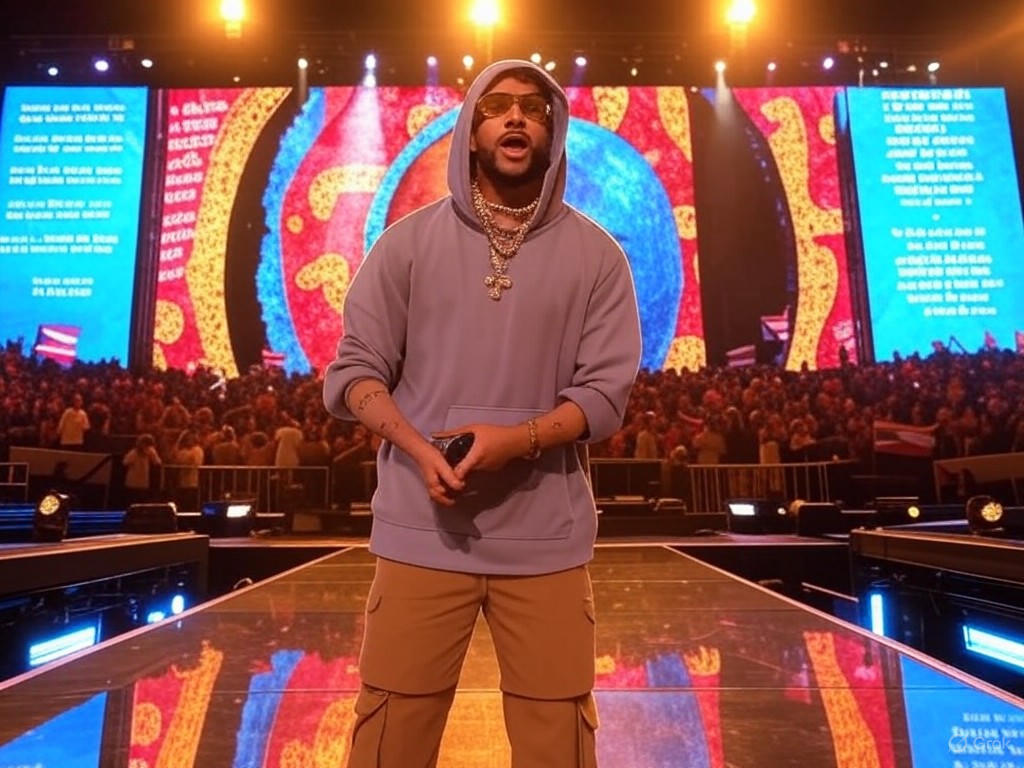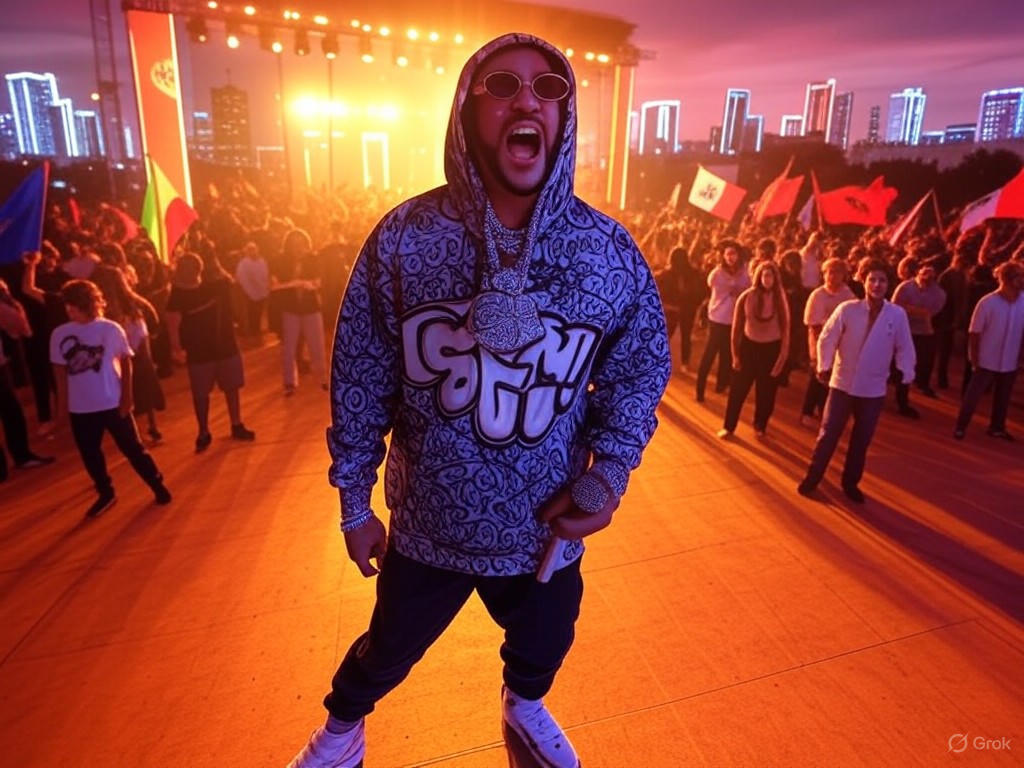Reggaeton’s Global Beat: Latin Music Rise
Introduction
In the pulsating heart of Latin America's urban landscapes, a musical genre born from the streets of Puerto Rico has transcended borders to captivate the world. Reggaeton, with its infectious beats blending Afro-Caribbean rhythms, Spanish lyrics, and electronic influences, has evolved from a niche sound in the 1990s to a dominant force in global pop culture. Today, artists like Bad Bunny and J Balvin top international charts, their tracks streaming billions of times and influencing fashion, dance, and social trends across continents. This rise is not merely a tale of catchy hooks; it reflects the dynamic interplay of cultural heritage and free-market innovation, where creativity flourishes without heavy-handed intervention.
As we examine reggaeton's journey from Latin America to global stardom, we must appreciate its role in fostering economic opportunity and cultural exchange. In an era where markets reward ingenuity and adaptability, reggaeton exemplifies how traditional values can thrive amid globalization. Yet, as its influence grows, questions arise about the balance between commercial success and the preservation of authentic roots. Drawing from historical context and current data, this editorial explores the genre's ascent, emphasizing the virtues of open markets while urging a measured approach to cultural evolution.

Crowds gather for a high-energy reggaeton show in San Juan, Puerto Rico, highlighting the genre's origins in local festivals and its role in community celebration.
The Roots and Rise of Reggaeton in Latin America
Reggaeton's story begins in the vibrant, working-class neighborhoods of Panama and Puerto Rico in the late 1980s and early 1990s, where it emerged as a fusion of reggae, dancehall, and Latin rhythms. Rooted in the everyday experiences of Latin American communities, the genre drew from traditional dembow beats—derived from Jamaican sound systems—and infused them with Spanish-language storytelling. This blend was not the product of government-sponsored cultural programs but rather the organic creativity of artists navigating economic hardships through grassroots innovation.
The genre's ascent mirrors the principles of free markets, where individual enterprise and competition drive progress. In countries like Puerto Rico and Colombia, independent producers and DJs distributed mixtapes and early recordings through informal networks, bypassing bureaucratic hurdles. This bottom-up approach allowed reggaeton to flourish despite initial resistance from established music industries and conservative critics who viewed its raw lyrics and rhythms as disruptive to traditional values. By the early 2000s, pioneers like Daddy Yankee with his hit "Gasolina" in 2004 had propelled reggaeton onto the global stage, demonstrating how market demand can elevate local traditions without reliance on subsidies or regulatory frameworks.
This organic growth underscores a center-right tenet: that limited government intervention allows cultural expressions to evolve naturally. As Billboard notes, reggaeton's breakthrough was fueled by digital platforms like MySpace and later Spotify, which democratized access and rewarded talent based on consumer choice rather than gatekeepers. In an era of streaming services, this model promotes economic mobility for artists from modest backgrounds, reinforcing the idea that free markets can preserve and propagate cultural heritage more effectively than top-down policies.
Global Influence and Market Dynamics
As reggaeton crosses borders, its influence extends far beyond music, shaping pop culture in ways that highlight the benefits of global trade and cultural exchange. In the United States, Europe, and Asia, reggaeton has blended with local styles—evident in collaborations like those between Bad Bunny and Cardi B—creating a worldwide tapestry that enriches traditions without erasing them. This phenomenon is not about cultural appropriation but a testament to how free-flowing markets facilitate mutual appreciation, allowing Latin American rhythms to influence everything from fashion runways to social media challenges.
Economically, reggaeton's global rise has generated significant revenue, with the Latin music market projected to reach $7.4 billion by 2025, according to industry analyses. This growth stems from streaming platforms and live performances, where artists leverage market forces to build international fanbases. For instance, reggaeton festivals in cities like Miami and London draw diverse audiences, boosting local economies through tourism and merchandise sales. Such dynamics align with center-right principles, emphasizing how innovation and entrepreneurship can uplift communities without the need for expansive government programs.
However, this expansion is not without challenges. Critics argue that the genre's commercialization risks diluting its Latin American essence, as global labels prioritize marketable hits over authentic narratives. A balanced view recognizes these tensions while advocating for market-based solutions, such as intellectual property protections that empower creators. As The Wall Street Journal reports, reggaeton's success has led to increased investments in Latin American talent, fostering a cycle of economic opportunity that traditional welfare approaches could never replicate. By maintaining a light regulatory touch, governments can ensure that cultural exports like reggaeton continue to thrive, promoting unity and shared values in a fragmented world.

Bad Bunny performs on an international stage, illustrating reggaeton's seamless integration into global pop culture and its economic impact on live events.
Evidence from the Industry: Data and Trends
To substantiate reggaeton's transformative impact, consider the empirical evidence from recent years. Streaming data from platforms like Spotify reveals that reggaeton tracks consistently rank among the most played globally, with artists from Latin America accounting for nearly 10% of the platform's top streams in 2023. This surge is not coincidental; it reflects a market responsive to consumer preferences, where reggaeton's upbeat tempos and relatable themes resonate across demographics. For example, Bad Bunny's album "Un Verano Sin Ti" shattered records in 2022, becoming the most-streamed album on Spotify with over 10 billion streams, as detailed in Variety.
Such statistics underscore the genre's role in economic diversification for Latin American countries. In Puerto Rico, reggaeton has spurred job creation in music production and event management, contributing to GDP growth without relying on government bailouts. A study by the RIAA (Recording Industry Association of America) highlights that Latin music revenues in the U.S. grew by 30% from 2019 to 2023, driven largely by reggaeton's appeal. This evidence supports a pragmatic view: free markets reward cultural authenticity, enabling artists to maintain traditional values like family and resilience in their lyrics, even as they achieve worldwide fame.
Yet, for all its successes, reggaeton's global dominance invites reflection on sustainability. Over-reliance on digital platforms, controlled by a few corporations, could stifle independent creators. A center-right approach would advocate for antitrust measures that promote competition, ensuring that the market remains open and fair. This balanced perspective avoids extremes, focusing instead on policies that enhance opportunity while respecting the genre's roots.
Conclusion
The global rise of reggaeton stands as a compelling narrative of cultural resilience and market-driven innovation, blending Latin rhythms with worldwide influence in a way that enriches pop culture. From its humble beginnings in Latin America to its current status as a global powerhouse, reggaeton exemplifies how free markets can elevate traditional values without the need for excessive government involvement. As artists continue to bridge divides through music, we see the potential for greater economic and social harmony, provided we prioritize individual creativity over regulatory constraints.
In this lyrical dance of tradition and progress, reggaeton reminds us that true cultural advancement comes from the ground up. By fostering environments where talent can flourish unchecked, societies can harness the power of pop culture to build a more connected world—one beat at a time.

